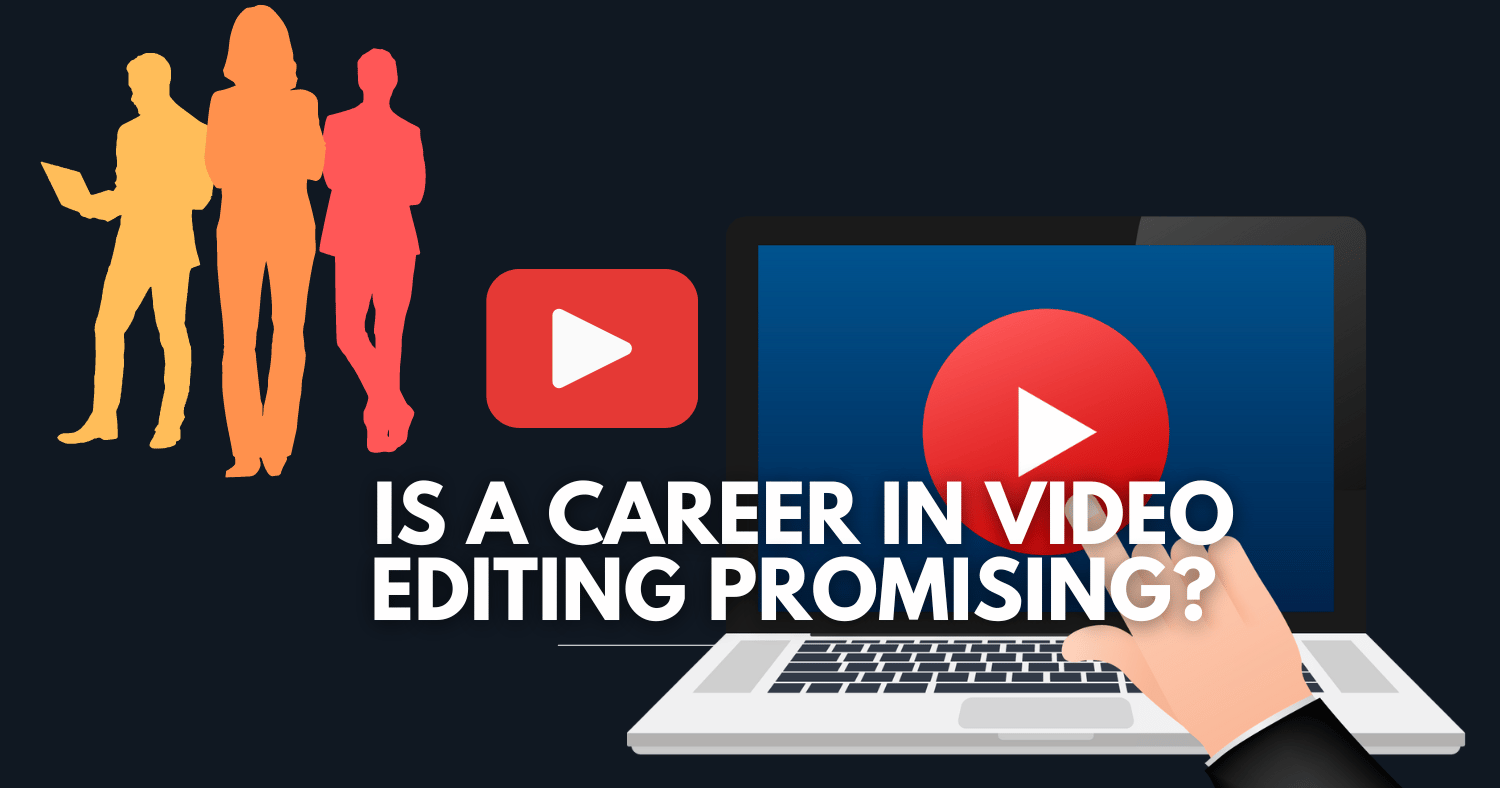Is a career in video editing promising?
Explore the potential of a career in video editing, an exciting sector that combines technical proficiency and creativity. Discover the prospects and possibilities in this rapidly developing field and related career paths like 3D animation and motion graphics design.
Salary and job opportunities for video editors
If you’re an artist who’s following your passion, family members undoubtedly have questions about “your ability to find work in that field.” Fortunately, with the growth of streaming platforms, social media, and other visual forms of advertisement and communication, video editors are required in most public-facing sectors. Over the next ten years, the U.S. Bureau of Labour Statistics projects that work as video editors will expand faster than the national average, primarily due to the retirement of more experts and the need for more businesses to use creative approaches to audience engagement.
A video editor can readily expect to make between $60,000 and $72,000 a year, depending on skill level and comfort with the most recent editing software. The highest-paying states include New York, New Hampshire, California, and Connecticut. However, pros can still qualify for higher wages by mastering new editing software and improving their craft. Video editors are usually hired by the film and video industries, followed by cable, radio, sound recording, independent artists, and contractors.
What makes a career in video editing suitable?
Video editing is a fantastic career choice for several reasons, including the opportunity to work with modern technology, many job options, and limitless possibilities for professional advancement.
Synergy between Technical and Creative Activities
The fusion of technical and artistic elements is one of the more unique characteristics of video editing. Video editors must be familiar with specific industry software and technology and the project’s creative structure. In addition to editing uncut videos, they work with directors, performers, producers, and other experts in the media production industry to develop visually stunning narratives.
Professionals can be adaptable and take on various media production tasks thanks to the technical and artistic components of video editing. Film, advertising, television, podcasts, music videos, and other media can all employ video editors. Professionals who have the opportunity to pursue a creative and technical career in video editing can explore their passions and gain vital skills that will help them in all aspects of the industry.
Expected Growth in Jobs
Over the next ten years, the increase in jobs for video editors is expected to exceed the national average, according to the U.S. Bureau of Labour Statistics (BLS). Video editors are in greater demand as seasoned employees retire and businesses seek fresh approaches to engage consumers. According to the BLS, most video editors are employed by cable networks, radio stations, motion picture and video companies, sound recording studios, and independent contractors.
According to the BLS, the annual salary of a video editor might range from $60,000 to $70,000, based on experience and technical proficiency.
The Option to Select a Workplace
Video editors don’t always need an actual workspace; they can frequently operate from home. As the need for editing software that works on any computer or platform grows, video editors can work from home or travel and take on various projects. Professionals can take on a wide range of assignments from across the globe thanks to this unique opportunity, which allows them to set their hours and negotiate pricing with freelancing gigs.
With this freedom, video editors might also research new creative paths that are not easily accessible in their local market. Freelancers and entrepreneurs who operate remotely can participate in international film festivals, television series, and other creative ventures that call for specific video editing abilities.
Quick-Speeded Workplace
Another advantage is the fast-paced work environment that comes with a career in video editing. Specific projects may have strict deadlines that call for rapid thinking, which can be exciting and demanding for professionals used to regularity and organization. Since every project has different requirements and video editors are responsible for staying up-to-date with emerging editing software and technological developments, there is always something new to learn.
Video editors can acquire an extensive understanding of the creative process and continuously enhance their skill set by working in dynamic work situations. This atmosphere is ideal for people who like to work alone because they have more control over how many hours they spend on a project.
Career options for video editors
Video editors have a wide range of professional options because of their training and skill in editing videos. These positions are frequently found in creative fields like film and advertising. Motion graphics design, which involves using specialized programs to create visual effects for videos, is a comparable job path. This line of work requires attention to detail and thinking outside the box when producing attention-grabbing animations. To get the desired effect, motion graphics designers must also be well-versed in color, light, and sound combinations.
Video editors who want to enhance their skill set can consider becoming 2D or 3D animators. Animators frequently collaborate closely with directors and graphic designers to produce captivating images that tell a tale or make a statement. They must have good animation and drawing skills and a solid grasp of storytelling and animation fundamentals. In the creative sector, graphic designers frequently provide captivating video graphics. Along with technical skills like typography and layout design, they must have an eye for color and composition. Working independently is necessary for graphic designers who want to produce excellent graphics that satisfy clients and deadlines.
At 360 Solver, discover the skills needed to become a video editor.
Are you eager to start working as a video editor but need help knowing where to begin? Remain calm! 360 Solver can assist you! Video editors can find a wealth of information on 360 Solver at any career stage. Through 360 Solver, professionals can investigate training options and career pathways in search of a roadmap for starting or advancing their professions. Editors should visit 360 Solver for a thorough summary of live, online, and in-person educational and practical training possibilities.
Video editors plan and produce their work using a variety of high-end software. However, how do you choose which apps to include in your toolbox? 360 Solver offers an extensive library of educational materials that describe the features, learning curve, and expense of mastering certain apps. Fundamentally, most professionals know their way around video editing programs like Final Cut Pro and Premiere Supposeo. Suppose you are an experienced professional seeking to improve your position. In that case, try learning 3D modeling and animation with Cinema 4D or motion graphics software like After Effects.
As you explore these advanced visual graphics programs, you will likely realize that learning these complex programs alone may be lonely and challenging. A certificate in video editing or a certificate in video editing and motion graphics are options for video editors who want to showcase their talents to prospective employers and diversify their portfolios. Because of the small class sizes and project-based learning opportunities, students receive a wealth of practical experience.

